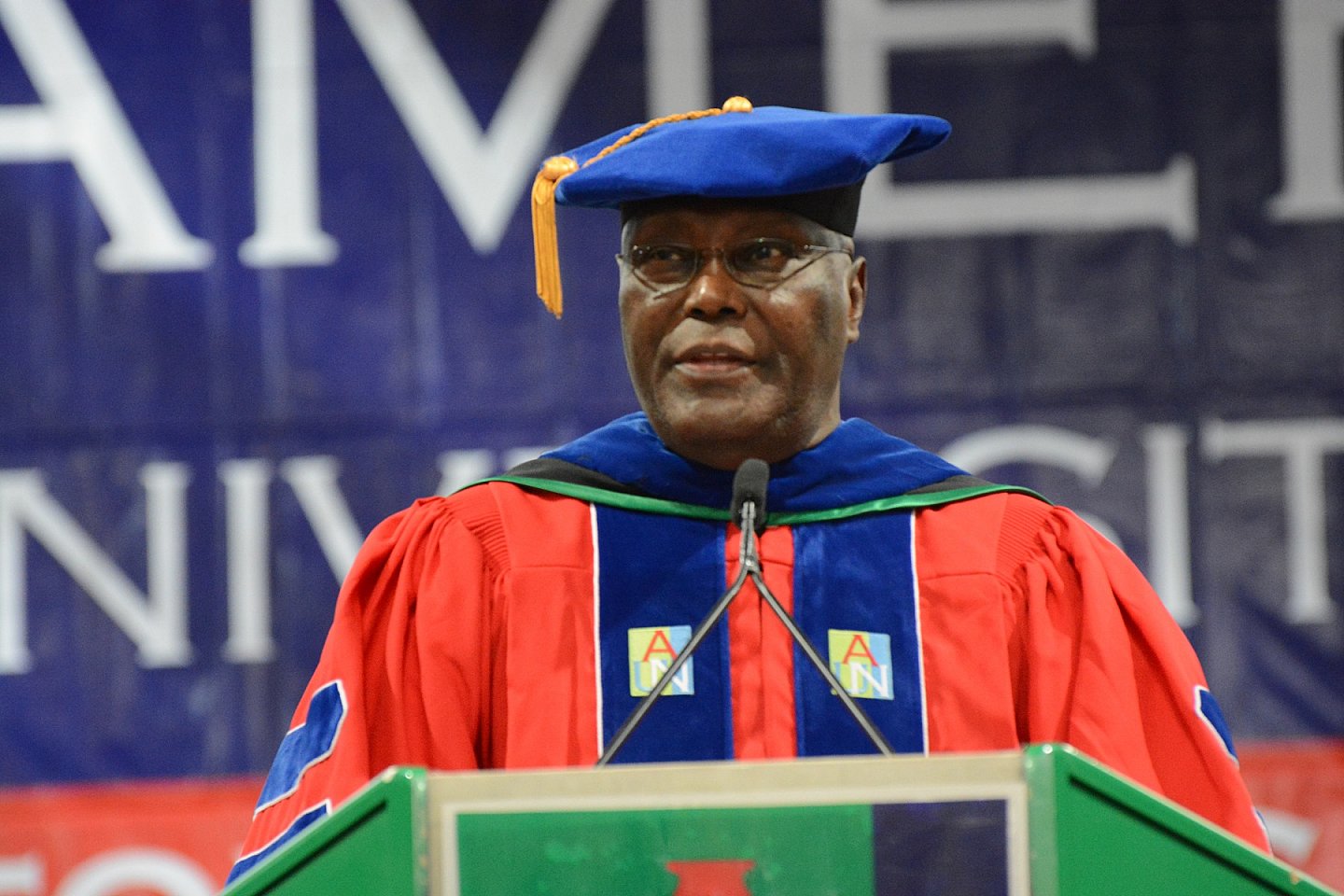Former Vice President, Atiku Abubakar, on Friday revealed that his father drown while crossing a local river.
Atiku was speaking on the topic:
Diversity, Education and Autonomy: Developing Nigeria in the Years Ahead, being a convocation lecture, at Achievers University, Owo, Ondo State.
Advertisement
The former presidential candidate of the People’s Democratic Party, PDP in 2019 went down memory lane saying his father was poor and refused to send him to school.
He said his father did not hate or dislike education of any type and that it was not about school fees as people were paid to go to school in those days.
Rather, his father needed him to herd cattle, refering to it as “normal in those days, and, is still so for many families, even today,” in the North.
He pointed out that, “For refusing to send me to school, he was sent to jail by the local authorities. Eventually I did go to school.”
Advertisement
He said his father did not live long enough to see where education would take him to, drowning in a local river when he was probably under 40 years of age.
“I was an only child and was raised by my maternal grandparents,” he added.
He said education and the success it brought to him helped to make him become a freer and more autonomous person.
He pointed out that the more educated one is, the more control he tends to have over his life; the more freedom he has to choose what he wants to become or what he wants to do, where he wants to live and with whom he wants to associate.
“Put simply, the more educated you are, the more freedom you tend to have. Therefore, the educated person is a more autonomous person. So, in a way, you can say that education is freedom,'” he asserted.
Advertisement
He referred to education as autonomy, noting that autonomy was critical for the individual or group to reach their full potentials.
He added that education was a social good in countries that value education and make the necessary investments in it.
“The nations that treat education and innovation more seriously and invest massively in them are also the leading nations of the world. And in the 21st century, education and innovation are key to national prosperity,” he added.
He said excessive centralization of power and concentration of resources in the federal government have not served Nigeria well.
Instead, they have encouraged a domineering all-knowing federal government that stretches itself into every aspect of lives of Nigerians with little positive results to show.
“Rather we have had excessive corruption, mediocrity, generations of citizens who hope to become rich without work, emasculation of state and local initiatives and a lack of creative and healthy competition among states as they all look towards Abuja for handouts every month.
Advertisement
“The development strategies that have produced 13 million out-of-school children, millions of unemployed or under-employed youth, including those with university degrees, and a level of insecurity that threatens to splinter the country into tiny bits controlled by armed warlords are clearly the wrong ones. We must change direction.
“We must reverse the concentration of power and resources at the centre. And we must make serious and conscious efforts to identify the potentials and strengths of each state and section of this country and work to maximize its contribution to the development of our country as it is supported to develop itself.
“That is how you allow greater autonomy while pulling together. Greater autonomy for states will allow ideas to germinate from anywhere and blossom.
“If Kano becomes a thriving industrial city, Jigawa would benefit and soon become an industrial centre as well.
“If we support the emerging automobile centres in Nnewi, Kaduna, Bauchi and Lagos, the tanneries of Kano would be the natural local suppliers of leather to that sector.
“If we reverse the on-going de-industrialization and attract tire manufacturing companies back to supply that sector, jobs will be created and the rubber plantations in Edo and surrounding states will benefit.”
He said reduction of federal powers and responsibilities and greater autonomy for states would, for instance, allow a state with very low demand for university spots to decide whether its priority is another federal university or investments in primary, secondary teacher education to ensure that its young population has basic education, preparatory for possible university or vocational education in the future.



